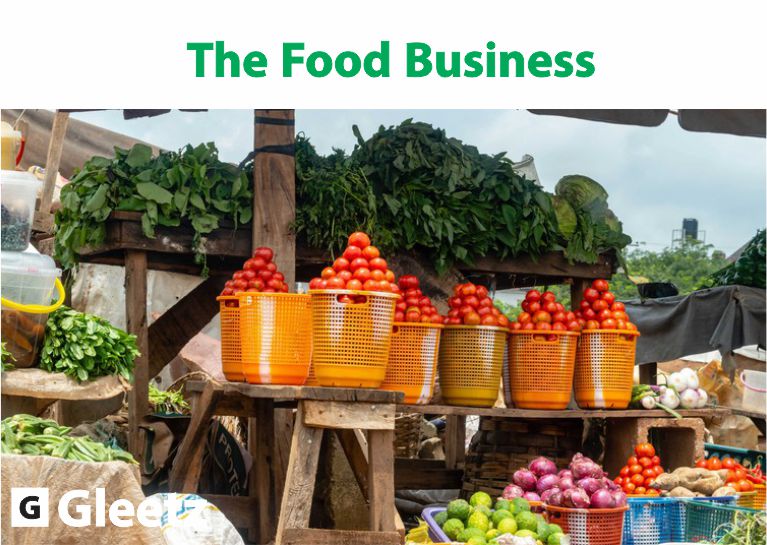Former US President Donald Trump Shot But Escapes Assassination Attempt
Food is an integral part of the survival of man. It is the foundation of all business transactions, starting with trade by barter which majorly constitute the exchange of goods and services. In many cases the goods are food items. Food is the most important basic need of man. Grocery business or food items business as popularly used by Nigeria has been one of the key businesses in the country. Grocery stores are a common sight in the cities and towns in Nigeria. In most places in Nigeria, for every five minutes’ walk, over ten groceries stores are usually spotted on the streets. In most cases, a group of grocery stores do form a market, complex, or annex of a market. It is an obvious fact that food business contributes to the nation’s Gross Domestic Product. As of 2019, food contributed about 21.91% to the Nigeria’s GDP.
Many might wonder what it takes to set up a grocery store or own a food establishment. Well, there have been different perspectives on the matter. Some say a little above a hundred thousand naira, another set of people states that a million and above is required, while a smaller faction of people have say that it depends on a person’s vision. From all that has been gathered, it appears that the scale of the business depends on the vision and the funds that is available to the business. It could be on a medium or small scale basis. Most importantly, determination and discipline are the currency to a successful business of which the food business is not an exception.

Every business is targeted at a specific customer range, but food business is an exception in most cases, like people who don’t cook, the bed ridden, convicted felon and babies. Food business generally needs no special marketing strategy, but location of the store or kiosk is instrumental to the success of the business. Such a business thrived better in residential areas, busy areas and food markets. In as much as it sounds weird, packaging and orderliness plays a major role in the success of a food business. Business ethics like honesty, integrity and punctuality are the currency to a successful business and food/grocery business is not an exception. Stores that are orderly and well arranged have the capacity to sell products with more profit margin than those that are displayed in a conventional manner. For instance goods in an open market stall on rough shelves with no price tags are susceptible to be priced compared to goods that are kept in well-arranged and neat stores. In such places, each goods comes with a price tag and this places the customer in a position where negotiation is never an option.
A retail food shop is all encompassing, it comprises varieties of food items and products, unlike most wholesale stores that constitute just a single product/commodity but in bulk. A random food shop in Nigeria constitutes processed and unprocessed food, including beverages and soft drinks. This is as a result of people’s preference and to make great sales and stay relevant in the business, the seller is expected to sell other food commodities also. Based on this, it is crystal clear that retail food business does not give room for specialization of a single commodity as the retailer is focused towards satisfying the need of the consumer and as such, he/she is aligned towards selling almost all the food items that can aid the cooking of a particular or multiple meal.

In as much as man cannot do without food, this does not mean that those in the business find it easy making sales. Sometimes, traders run into deficit as a result of factors like the fluctuation in cost and market price, multiple taxation, high cost of transport fee, personal generation of electricity supply, and currently the nature of Nigeria’s currency. By their very nature, groceries had very minimal profit margins and rely heavily on volume to make it viable. It is also a known fact that food business flourish more during festive seasons, in most cases, if demand for a particular food item becomes more than its supply, the price of such commodity automatically goes high. it is also germane to know that inflation plays a key role in the hike of goods (food items) in this case it affects both the seller and the buyer. A typical example is the current food inflation which is at 16%. This has weakened the purchasing power of the seller and the buyers. Most groceries stores known for having full stores are almost weary at sight (empty) and it has also affected the purchasing capacity of the consumers.
Food business is highly lucrative, and the very first step to take is to decide on the foodstuff you want to sell. And this is a function of your location, it might be a zone where you have lots of married people with families, in this case you can incorporate baby foods also. One important thing is your network. Just like some authors will say, “your network is your net worth”. When you start up a food business your first set of customers are usually those affiliated to you and they will aid in spreading the news about your brand. Reason been that there are one and a thousand foodstuff outlet in every state in Nigeria, and in many cases people usually leave the nearest food store to farther places to buy same thing that is been sold close to them. This doesn’t you selling close to such a buyer is selling substance products, but there is a relationship that has been established between the buyer and the distance buyer. It could be through referrals and a good market relationship over time. Which brings me to a very impressed point about the grocery business, it’s very important that as an interesting individual you build a friendly customer service system that ensures that your customers are invested you as this can be the difference between flourishing and failing. Sadly, most grocery owners are failing on this front and could do better.
Capital, is like the blood of every business. It shapes the nature of one’s business and also plays a major role in the success of a business. For food business their no specified capital, it has to do with the dealer’s zeal and tenacity. But we will not rule out the fact that wholesale and bigger business requires huge fund. The next should be having a business plan for it helps the started stay focused and coordinated. More so, adverts is very important, it’s not about paying for commercials on media platform but knowing how to make noise about your business and taking it up like a kingdom mandate to expand your customer base. In conclusion, there are several key factors that determine the success of a food items store or a grocery store as we have been discussing depends on key factors such as Location, funding, vision and the ability to build lasting relationships with the customer. This must form the bedrock of your thinking even as you are thinking of starting a food items store.










